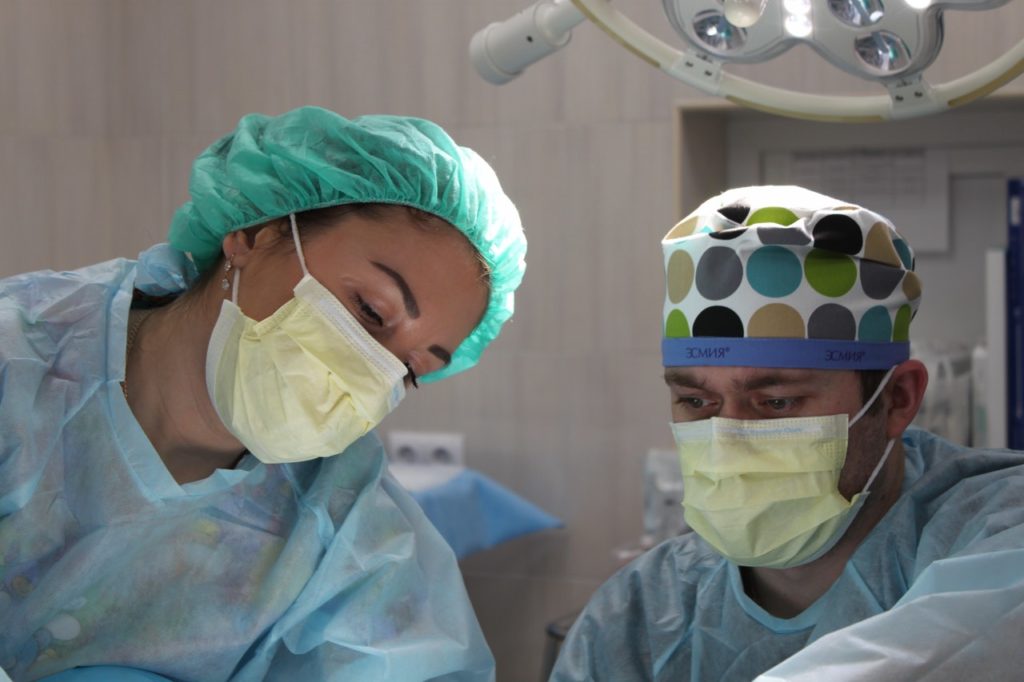Depending on your surgery, you may have to wait from a few weeks to a few months before you engage in any strenuous exercise to prevent injury and slowing down the healing process. However, this doesn’t mean that you have to lie around and do nothing. In fact, recovery from surgery is best paired with a safe exercise routine. You won’t be able to return to your peak performance just yet, but easing into exercise is will still help your body regain its athletic abilities.
If you are living alone and unable to care for yourself safely while recovering, your doctor may recommend hospice care services at home. But if your condition does not entail such a set-up, you would have to follow the exercise plan that your doctor or physiotherapist had planned for you.
Aside from following your doctor-recommended routine, here are other things you can do to stay physically active while recovering from surgery, without causing injury to yourself or slowing down the healing process.
Walk
Walking is excellent cardio for post-surgery recovery. It is a low-impact exercise that improves blood flow and helps speed up wound healing, which, in turn, helps prevent the development of blood clots and infections on stitches.
After your doctor gives you the go-signal, incorporate at least a fifteen to thirty-minute walk into your daily routine. Walk on paved, even paths to prevent unnecessary strain on your hips, legs, and ankles. If possible, bring a friend with you to make your walks more enjoyable and thus more motivating.
Listen to your body
When recovering from surgery, it is extremely important to listen to your body. If you start to feel pain in the area where you got surgery, stop what you’re doing immediately and take a rest. Overexerting yourself will only lead to a slower healing process, or worse, an injury that can increase your pain and make life even less comfortable.
Refrain from pushing yourself to the limit when exercising. Accept that you won’t be able to reach your peak physical performance while your body is still healing. Granted, this feels frustrating, especially if you’ve been itching to return to your normal workout routine. But letting your body get the rest that it needs will help the recovery go much faster.
Go swimming
Swimming is a great exercise for people who are recovering from injuries and surgeries because it is a full-body workout that puts minimal strain on the body. It keeps your heart rate up, builds your endurance, strengthens your muscles, and helps maintain a healthy weight, all without putting impact stress on your body.
Swimming will also give you the chance to get out of the house and socialize. Spending time outside of your home and getting to meet other people will help keep your spirits up, which is an important part of recovery. If you are swimming outdoors, however, remember to take the necessary precautions to avoid sunburn. Similarly, protect your body from chlorine irritation and skin rashes to prevent further discomfort.

Stretch
Even if you are not going to work out, stretch your body regularly to keep your muscles loose and decrease soreness caused by lack of mobility. Your physiotherapist will have likely recommended a stretching routine for you, so be sure to follow it daily or before engaging in exercise. If not, it’s best to ask for one so that you can proceed with exercise safely.
Increase activity gradually
When you start feeling stronger, add in more low-impact exercise to your routine, but not without the go-ahead from your physiotherapist. Cycling, light hiking, and rowing are some great examples of exercise that are easy on your hips, knees, back, and ankles.
Maintain a balanced diet
Refrain from consuming more calories than you need while in post-surgery recovery. Excess weight on your body will make it more difficult and painful to move around. Moreover, poor nutrition can delay healing and even increase the risk of wound breakdown.
The healing process requires an increased intake of calories, primarily from protein and fats. These nutrients help the body replace the injured tissue with new ones. Hence, when you don’t get enough nutrients, you may start to lose muscle as the body consumes it for energy. Inversely, consuming too much can lead to weight gain, which can increase the strain on your body, particularly your bones and joints.
Recovering from surgery is not an easy process, but there are ways with which you can make it less demanding. By following these tips, you can maintain a good level of physical activity while recovering, as well as gradually prepare your body for your normal workouts after you recover.

